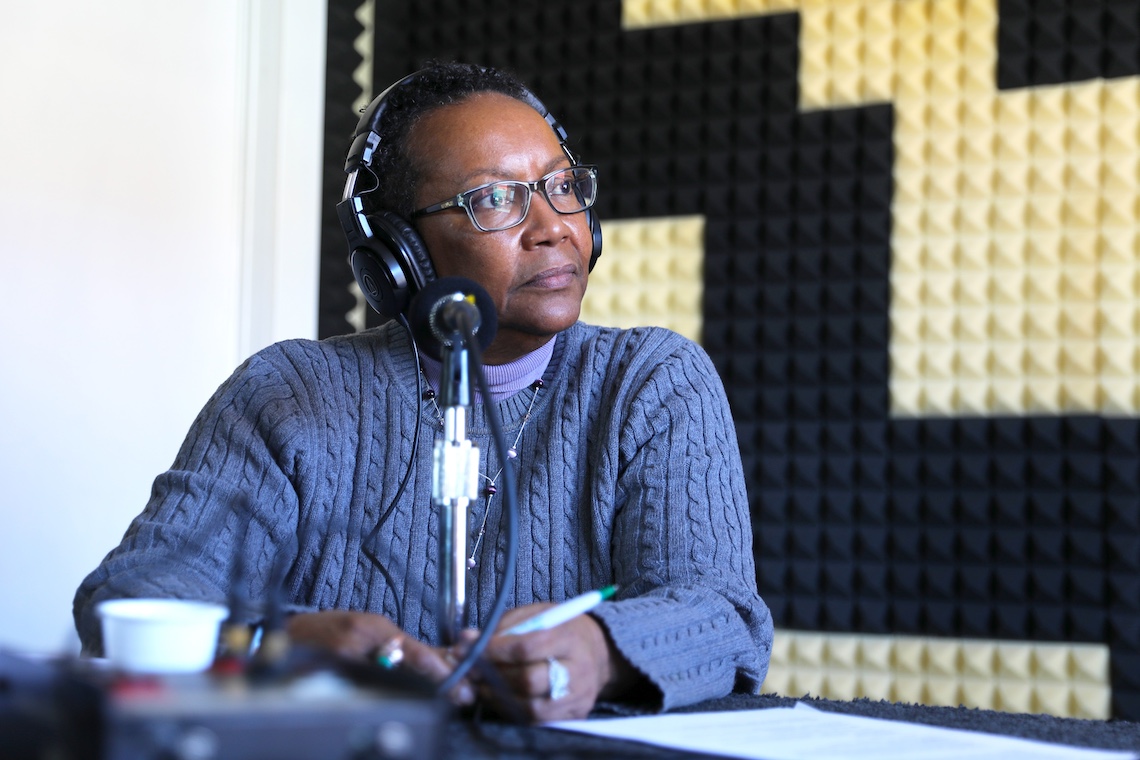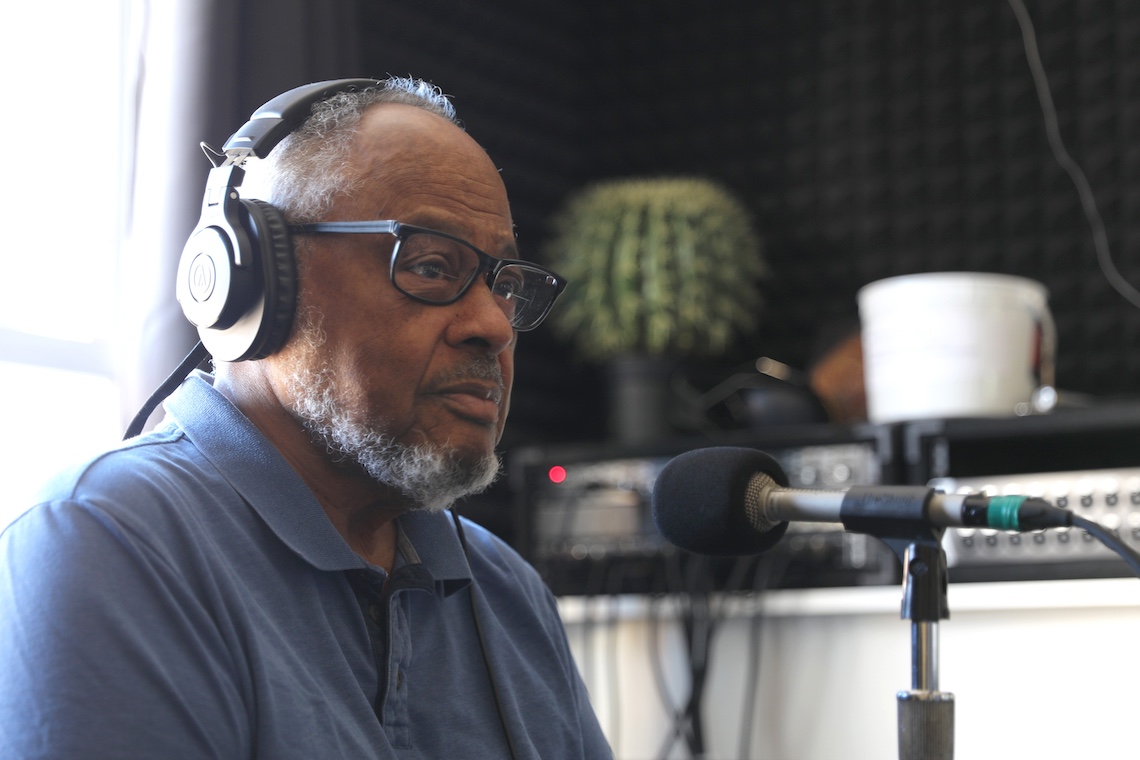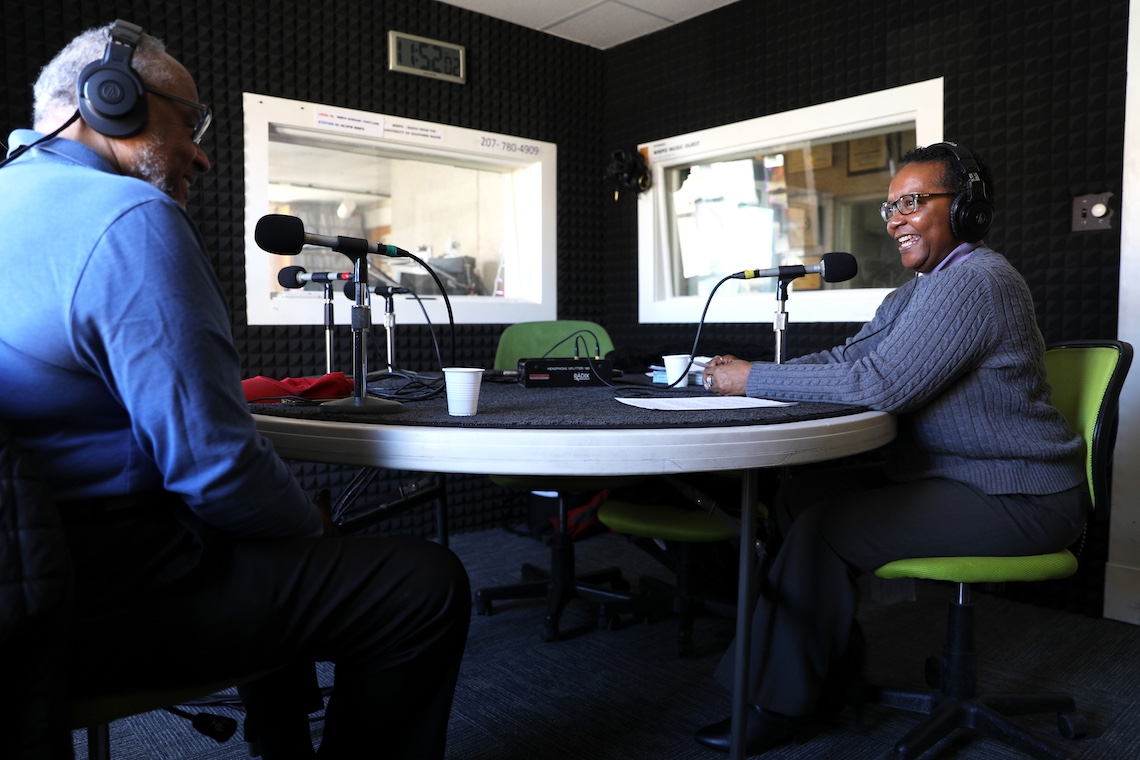Sitting in front of a microphone for the first time was intimidating for Dr. Idella Glenn. But after years of encouraging students to speak their minds, she rose to that challenge herself by launching a new radio show.

Intercultural Insights broadcasts from the WMPG studio on the University of Southern Maine’s Portland campus. It’s a forum where people of color can share their experiences as Mainers and discuss their place in the greater Portland community. Glenn sees the show as a natural extension of her role as USM’s Vice President of Equity, Inclusion, and Community Impact.
“It’s really a learning opportunity for me so I can learn and teach as I’m going along with the shows,” Glenn said. “That’s really a part of the work that I do at USM to increase awareness, knowledge, and skills.”
Glenn made her hosting debut on January 16 with an episode focused on Martin Luther King and the Civil Rights Movement that he championed. The episode on February 20 focused on Black History Month. To provide local context, Glenn invited Bob Greene to sit in as her guest.
Greene teaches a course on Maine’s Black history at the Osher Lifelong Learning Institute. He’s a retired journalist who traveled the world covering everything from plane crashes to tennis matches. His family has lived in Maine for eight generations, dating back to the 18th century. He dove into genealogical research as a way to teach his children about their roots.
The earliest evidence that Green was able to find of a Black presence in Maine dates back to 1608 in the person of Mathieu da Costa. He was a translator for a group of French explorers. Greene points to court documents from 1672 that suggest Antonius Lamy, described as a Black man, may have been Maine’s first doctor of any race.
Greene’s family history shows how Black Mainers continued to leave their mark on the state. By telling their story on the radio, Greene hopes to open the conversation to more people of color who might have felt overlooked.

“There is more than one way to look at things,” Greene said, “more than one way to do things, more than one solution to a problem. And that’s what this is.”
Glenn’s connection to Maine began more recently. She lived most of her life in South Carolina and later spent several years in Virginia. She began her job at USM in 2020 in the early days of the COVID-19 pandemic. Nine months of remote work would follow before she finally moved to Maine.
Glenn had never lived outside of the South before and Maine took some adjustment. She started by making contacts through work and church. Over time, she eventually built friendships with a network of fellow Black women stretching across the state.
A friendly welcome from Glenn’s neighbors helped with her transition. That was a change from her previous homes where her neighbors kept mostly to themselves. Glenn was also surprised to meet so many recent African immigrants living in Maine, which is something she hadn’t experienced elsewhere. Her show addresses the changing demographics.
“A lot of why there’s misunderstandings or tension or discord between groups is because they haven’t been exposed to people who are different,” Glenn said. “When you get that exposure, then you know real people instead of what you read in a paper or maybe something you see on TV. This opens it up to a real person and creates an opportunity for people to connect.”
Glenn does her homework for each show. She researches her topics before airtime and refers to her notes throughout the broadcast. But she also knows when to set the papers aside and fully engage with her guest. As expected from someone with experience leading a classroom, she is comfortable asking questions and probing gently for answers.

Glenn’s confident interviewing style masks an underlying nervousness. Her unfamiliarity with radio made her hesitant to accept the hosting gig. WMPG Program Director Jessica Lockhart eventually won her over.
The show was Lockhart’s brainchild. She knew from the start she wanted to showcase the region’s growing diversity, but the format required extensive planning. Lockhart scheduled the show on Tuesday with a rotation of different hosts and themes each week of the month.
The third week is Glenn’s beat and her theme is titled Building USM’s Beloved Community. The second-week host is fellow USM educator Dr. David Lowry, assistant professor of Anthropology. He is also the founder of the Indigenous People’s Trust and calls his segment of the show Returning the Land.
The Black Owned Maine Podcast airs the first week of the month, hosted by entrepreneur Rose Barboza. Artists from the Indigo Arts Alliance occupy the fourth-week slot with Voices and Visions: The Podcast.
“I’m pretty psyched because all of the four shows are slightly different, but they’re talking about really important issues,” Lockhart said. “For ‘MPG, this is so exciting because this is what we do. We want all sorts of voices to be on the radio. Yeah, it’s great.”
Each episode of Intercultural Insights runs for a half hour every Tuesday, starting at 11:30 a.m. WMPG can be found on the radio dial at 90.9 FM and also streams online.

